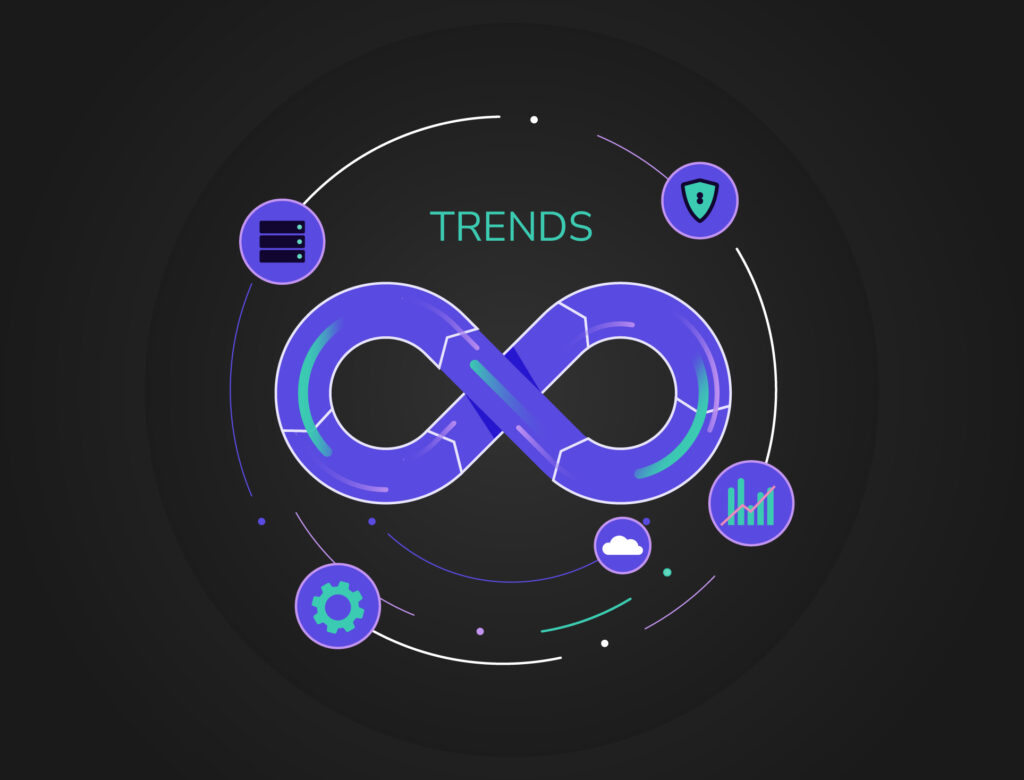In today’s DevOps landscape, much of the spotlight is on AI and DevSecOps as transformative forces, but there are other, equally impactful trends shaping the future of DevOps. This article dives into three pivotal areas that are influencing how DevOps teams operate, streamline processes, and address emerging challenges. By focusing on security, automation, and developer experience, organizations are better positioned to keep pace with technological advancements while maintaining efficiency and agility.
-
Security First: Policy-Based Management and Infrastructure as Code (IaC)
Security has always been at the forefront for DevOps teams, but in 2024, we’re seeing a distinct shift toward more integrated, automated, and proactive security practices.One such trend is cloud policy management, which leverages providers’ code-based configuration frameworks to secure resources. These frameworks allow teams to configure resources consistently and automatically, reducing the risk of human error and enforcing best practices by default.
Another critical advancement is static code analysis for Infrastructure-as-Code (IaC) templates, which allows teams to catch vulnerabilities early in the lifecycle, well before they reach production. Furthermore, some teams use IaC and cloud policy tools to promote cross-functional collaboration, using audit-mode configurations to warn others of potential security risks. This prevents disruptions often caused by miscommunication between security and development teams.
-
GitOps: The Future of DevOps Automation
Automation is at the heart of DevOps, and GitOps is now becoming a leading practice in this space. By using Git or similar source control systems to manage workflows, teams can define configurations as code, which are then applied using automation features like GitHub Actions.This approach not only centralizes automation controls, but also provides a single, auditable source of truth. Every change is tracked, simplifying documentation and making it easier to trace issues back to specific actions. GitOps requires a dual focus on IaC and source control expertise.
While this may present a learning curve, organizations that fully embrace GitOps can eliminate many manual processes, achieving an entirely automated DevOps pipeline that spans from code to production.
-
Prioritizing Developer Experience (DX)
At its core, DevOps is about making software delivery more efficient and predictable, yet it’s ultimately about empowering developers. A strong developer experience (DX) can make a significant impact on productivity and satisfaction.Two key initiatives driving DX are platform engineering and developer self-service. Platform engineering involves dedicated teams focused on areas like network management, security, or specific functions within DevOps. This enables developers to concentrate on their core responsibilities without being burdened by broader operational tasks.
Meanwhile, Internal Development Platforms (IDPs) are making it possible for developers to access infrastructure and environments on-demand, allowing them to be self-sufficient without relying on lengthy procurement processes.
These trends in security, automation, and DX reveal a DevOps landscape evolving beyond the buzzwords, towards a more structured, sustainable, and developer-focused future. By embracing these trends, organizations can adapt their DevOps practices to meet the complexities of modern software development, fostering innovation and resilience along the way.






